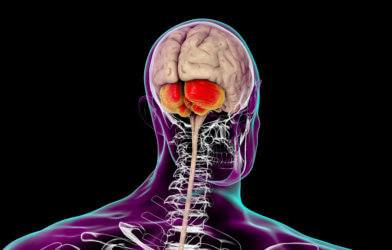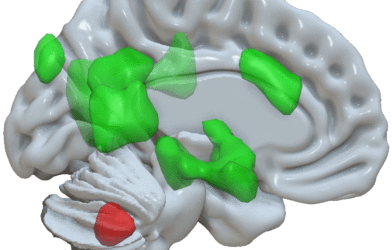Formulating an opinion in this day and age can certainly hinge on a number of factors. With so many avenues for sharing and debating — and the pressure many feel for acceptance, how does the brain manage to shift one way or another? Scientists say it all comes down to the type of social influence happening in the moment.
Informational social influence refers to a person changing their opinion after receiving additional information from another person. Normative social influences refer to people revising their views because they want to be socially accepted. This understanding is increasingly relevant to society which is influenced so greatly by social media and the manipulation of opinions, according to Dr. Bahador Bahrami from the Ludwig-Maximilians-Universtat (LMU) Department of Psychology.
Dr. Bahrami, along with Dr. Ali Mahmoodi from the University of Oxford, and other researchers, characterized brain activities that occur when social influences change opinions. “We were able to show that our brain solves social conflicts – that is, differences of opinion – via the same neural machinery that it uses to solve its own internal, subjective conflicts,” explains Bahrami in a statement. “A specific region of the brain takes two factors into account – how confident we are in our opinion and how polite we are obliged to be toward others.”
In their study, the researchers used a computer-based game. Participants had to try to remember the position of a dot displayed on a screen. They gave confidence values for their answers. They were allowed, however, to revise their guesses after seeing the answer of a computer or of a virtual “partner” to whom they had been introduced before the experiment. All the answers were provided by computers.
Bahrami’s team tracked the brain activity of all the test subjects during the game using functional magnetic resonance imaging (fMRI). This non-invasive method allows areas of the brain which have high oxygen consumption due to the brain tissues’ high activity to be displayed with distinctive spatial resolution.
Participants tended to alter their responses after indicating low confidence in their own answer when it was followed by an answer which was different. This occurred whether that different answer was generated by a computer, or they thought that the answer following their own was delivered by a person. The fMRI recorded activity in the dorsal anterior cingulate cortex (dACC) of the brain, indicating that it was the site responsive to informational influence. The dACC is a region of the cerebral cortex.
Test subjects were more likely to show conformity with other opinions when they believed that a response they received had been generated by their communication partner. This normative influence arose only when they believed that their partners were human.
The correlation with dACC activity also occurred only when the recipient believed that the response they received was from a human communication partner. The normative influence was also associated with stronger functional connections between the dACC and other social processing regions of the brain. The informational influence did not show a strong functional reaction with social processing regions of the brain.
Bahrami and his colleagues also tested for responses to artificial intelligence (AI) applications. “We established that the human brain only feels the need for politeness when it’s interacting with other people and not with a purportedly artificial (albeit intelligent) agent,” says Bahrami. With the use of artificial intelligence in an ever-widening variety of fields, he concludes that this is an important topic for future projects.
The research is published in the journal PLoS Biology.







-392x250.jpg)



